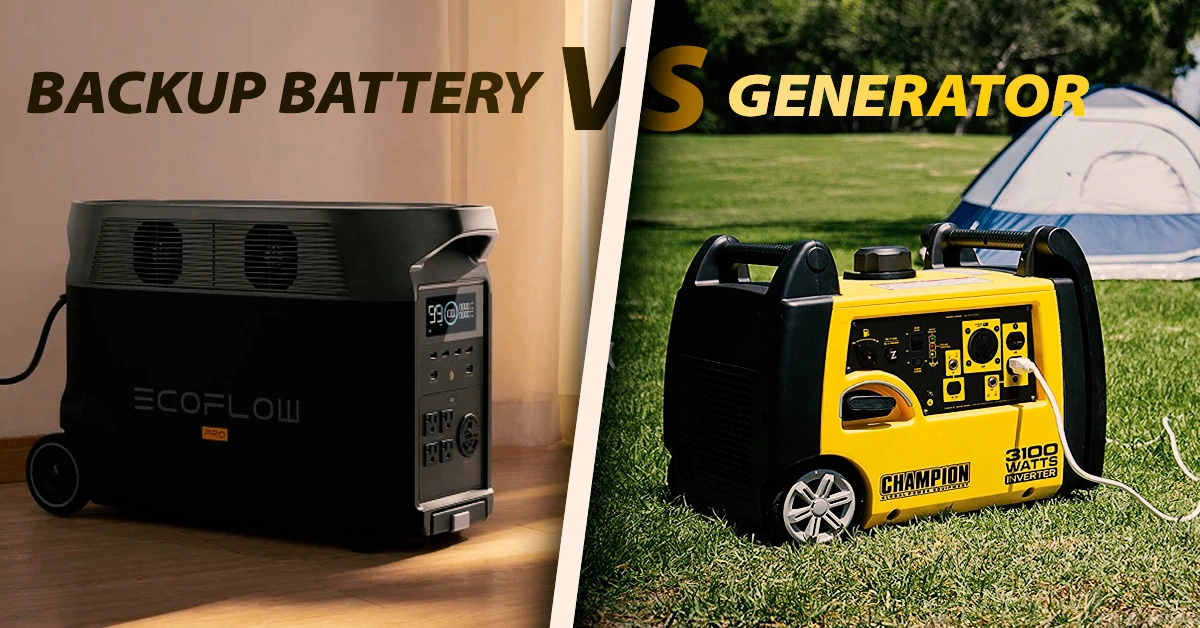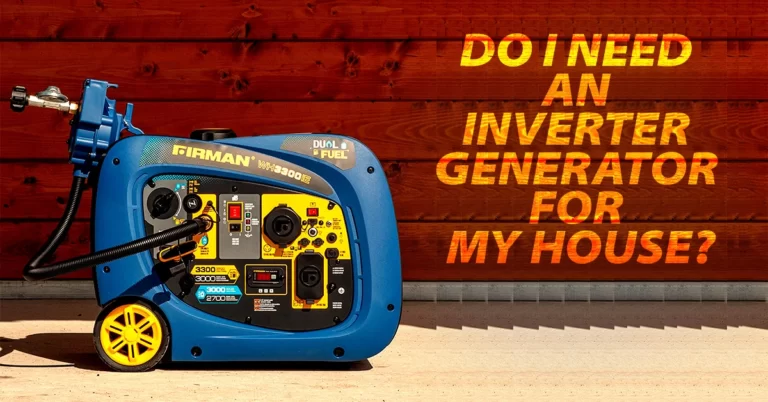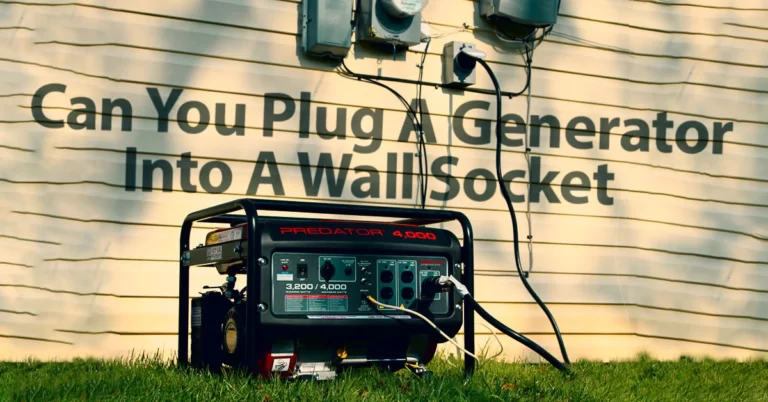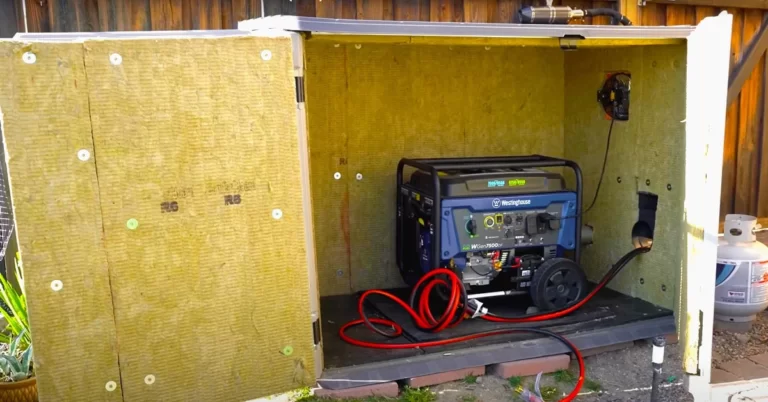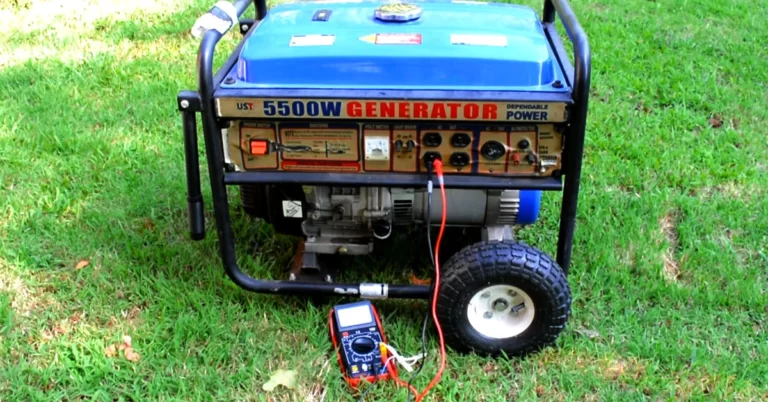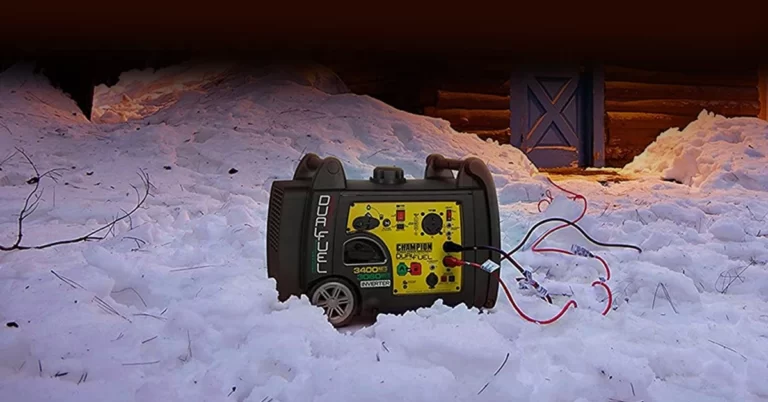Generator vs Backup Battery For Home – Which Is Better
Modern life is largely powered by electricity, which powers everything from lights and appliances to vital communication equipment. But power outages can happen at any time, depriving us of the electricity we depend on. A power outage can interfere with our everyday activities and possibly put our safety in danger, whether it is brought on by calamities, extreme weather, or other unforeseeable events. Backup power systems can help in this situation.
You can stay connected and productive during power outages and reduce the risk of losses like food spoiling or damage to key equipment by having a dependable backup power source in place. It might be difficult to decide which backup power solution is ideal for your home, though, given the variety of options that are currently available.
We hope to assist you in selecting the backup power source (generator vs. backup battery) that best suits your requirements by weighing the advantages and disadvantages of each choice.
Comparing Battery Backup Vs Generators As Potential Backup Power Sources
Battery backup systems and home generators are two of the most widely used backup power choices. The best option for you will depend on your unique demands and circumstances. Both sorts of systems have pros and cons.
Portable power stations, residential energy storage systems, and uninterruptible power supply (UPS) systems all rely on stored electrical energy to provide power during a blackout. These systems can be deployed in a variety of places and are frequently quiet and low-maintenance. They are a more environmentally beneficial choice because they can also be charged using renewable energy sources. Battery backup systems, however, have a limited capacity and might not be able to run heavy equipment or devices for a long time. Depending on the capacity and type of system, they might also be expensive to install and require routine charging.
Home generators, on the other hand, produce energy and supply power during a power outage using fuel, such as gasoline or propane. They come in a variety of forms, including standby, portable, and inverter generators. Long-term backup power can be provided by home generators, which can run large appliances and equipment for an extended period of time. However, they need to be maintained frequently, require fuel storage, and can be noisy when running. Also, they could cost more to buy and install than battery backup systems.
Identifying Your Requirements
The first step in choosing the best backup power source for your home is to evaluate your demands. It enables you to pinpoint the crucial appliances and gadgets you need to continue using in the event of an outage, ensuring your security and comfort.
Start by listing the essentials, including medical supplies, communication tools, and lights. Since they are essential for survival, medical equipment like oxygen tanks and CPAP machines should be given first priority. Make sure you have a backup power supply that can run these devices for a considerable amount of time. Mobile phones and other communication tools should be taken into consideration as well, as they are essential for contacting emergency services, friends, and family.
Secondly, think about additional necessary items like stoves and refrigerators. Stoves offer a way to prepare food, while refrigerators assist in preventing food spoilage. When there is a power outage, using your oven to cook instead of setting up a propane stove inside your house may be safer if you have an electric range. You won’t have to worry about power outages hurting your cooking if you use a gas stove.
While having comforts like air conditioning and hot water heaters is good, they should not take precedence when there is a power outage. Concentrate on the necessities for basic comfort and survival. You can make sure that you invest in the appropriate backup power source for your home by evaluating your demands and ranking your backup power requirements.
Battery Backups
Rechargeable energy storage units called backup batteries can supply electricity during power outages. When there is power, they work by storing energy that can be used later when there is no power. Lead-acid, lithium-ion, and saltwater batteries are just a few of the several kinds of backup batteries that are offered.
The most popular kind of backup battery is a lead-acid battery, which has been around for a long time. They are a well-liked option for backup power because they are reasonably cheap and have a lengthy lifespan. However, their capability is constrained by their weight and low energy density.
Another well-liked variety of backup batteries is the lithium-ion battery. They can store more energy in a smaller space than lead-acid batteries because they are lighter, more portable, and have a higher energy density. They have a shorter lifespan and are more expensive than lead-acid batteries.
A saltwater electrolyte solution is used as the energy storage medium in saltwater batteries, a more recent type of backup battery. They last a very long time, are environmentally friendly, and are quite inexpensive. In contrast to lithium-ion batteries, they have a lower energy density, which reduces their capacity.
The benefits of employing a backup battery for emergency power are their affordability, simplicity of usage, and lack of pollutants. Backup batteries are a practical choice for emergency power because they don’t need gasoline or routine maintenance.
A backup battery’s limited capacity, which might not be enough to power all the essential equipment during a prolonged outage, is one of its drawbacks. During a protracted outage, it might not be possible to regularly charge backup batteries, and they might not be able to handle high-power appliances like air conditioners or electric stoves.
When only necessary things, such as lighting, medical equipment, and communication devices, need to be powered, a backup battery may be the ideal emergency power source. Also, they are helpful in locations with brief and infrequent power outages.
Backup batteries are a practical and affordable choice for emergency power. While they might not be appropriate for powering all devices during a prolonged power loss, they are a great option for maintaining the operation of critical equipment. It’s crucial to take into account variables like capacity, price, and charging needs when selecting a backup battery to make sure it suits your unique requirements.
Pros Of Battery Backup
Here are some additional points elaborating on the pros of battery backups:
- In comparison to generators, battery backups can be deployed indoors without the need for ventilation or concern over carbon monoxide buildup.
- Also, they are significantly quieter than generators, which can be crucial if you have nearby neighbors.
- When there is a power outage, a battery backup allows you to have clean, immediate backup power without the need for gasoline or other fuels, which can be hard to come by in an emergency.
- Certain battery backup systems can be configured to turn on automatically during a power outage, keeping your home powered even if you’re not home to manually turn it on.
- By enabling you to use stored energy during times when electricity is most expensive, such as during peak hours, battery backups can also help you lower your energy costs.
- They are also eco-friendly and can let you employ renewable energy sources like solar electricity, which will lower your carbon impact.
- Battery backups are adaptable and can be used in a range of locations, including residences, workplaces, and even RVs and boats.
- Battery backup systems are an adaptable choice for long-term backup power solutions since they can be increased in size or changed over time to accommodate your evolving power requirements.
In general, battery backups offer a dependable and sustainable backup power supply that can assist in maintaining the operation of your home during an outage while also minimizing your environmental impact.
Cons Of A Backup Battery
Although battery backups are a common option for homes seeking an emergency power supply, there are some downsides to take into account. The following are a few drawbacks to battery backups:
Higher Upfront Costs
The cost of battery backup solutions may be higher than that of portable generators.
Professional Installation And Calibration
To ensure that a battery backup system matches the needs of the home, expert installation and careful calibration are required.
Costly Maintenance
battery backups include a lot of parts and therefore need expensive annual maintenance.
Limited Recharging Options
Without a solar power system or another backup power source, battery backups cannot be replenished during a power outage.
Not Ideal For Extended Blackouts
Since battery backups have a finite capacity, they are not the ideal choice during prolonged outages.
Considerations for deciding between a generator and a backup battery include the duration of the power loss, the required amount of power, and the accessibility of fuel or charging options. Despite the limitations, battery backups are still a young and developing technology that may become more widely used and affordable in the future. Which emergency power source is best will ultimately depend on the demands and circumstances of each person.
Generators
Many households choose generators as their go-to emergency power source. An apparatus that transforms mechanical energy into electrical energy is a generator. This is accomplished by running an engine that rotates a generator on a fuel source, such as gasoline, diesel, propane, or natural gas.
There are various generator kinds on the market, and each has a unique combination of benefits and drawbacks. Portable generators are lightweight and portable. They work fine for a few small pieces of equipment or appliances, but they are not meant to power an entire house. The entire house might have backup power thanks to standby generators, which are intended to be permanently positioned outside of your home. Compared to other types of generators, inverter generators produce high-quality power with less noise and lower fuel consumption. Last but not least, solar-powered generators produce electricity using the sun’s energy, making them a sustainable and green alternative.
Using a generator as backup power has a number of benefits. For starters, if you have a backup generator, it can provide a lot of power, enough to power your entire house. As long as you keep up with basic maintenance, they are also dependable. Generator fuel is easily accessible, and some of them can accept numerous kinds of fuel. Generators do, however, have significant drawbacks. They can be noisy, particularly if a portable generator is operating nearby your house. However, they need routine maintenance, and the price of fuel can rise significantly, particularly during a protracted outage.
A generator might be the ideal emergency power source in areas where power outages are frequent or when you need to power numerous appliances or tools. For instance, if you reside in a region where hurricanes or tornadoes are common, a generator can supply vital power during and after the disaster. They are also excellent for camping vacations and other outdoor activities without access to electricity.
Pro Of The Generator
For those searching for a second source of electricity for their homes, home generators are a dependable and well-liked option. The following are some benefits of using a home generator:
Accessibility
Generators are widely accessible and simple to obtain. They are a more accessible choice because they don’t require installation like battery backup systems do.
Lower Initial Costs
Initially, generators are less expensive than battery backup solutions.
Continual Power
Household generators, as opposed to battery backup systems, which have limited power, may produce electricity continuously as long as they have fuel.
Seamless Switching
In case of a power outage, standby generators can be connected to the home’s electrical system and switched on immediately to provide continuous power.
Multiple Fuel Options
There are several sizes and fuel types for generators, including gasoline, diesel, propane, and natural gas.
Portable Models
There are more compact portable generators that can be used for personal needs like lighting up outdoor activities or camping excursions.
Professional Installation
Larger standby generators must be professionally installed because they are hooked to the home’s electrical infrastructure.
Home generators are a common option for homeowners since they provide a dependable and effective source of backup power during emergencies.
Cons of the generator
While generators provide benefits, they also have a number of disadvantages, such as:
- Emitting exhaust fumes that could be dangerous to both the environment and human health
- Requiring routine maintenance to keep them in good working order
- Because of their fuel capacity limitations, which present a problem during prolonged power outages.
- Using fossil fuels, which might be problematic for anyone trying to lessen their carbon footprint.
- Being potentially hazardous if not used correctly because they can start fires or cause carbon monoxide poisoning
It’s vital to take into account aspects like the length of anticipated power outages, the amount of power required to run essential appliances, and the accessibility of fuel or charging choices when deciding between a generator and a backup battery system. It’s also critical to consider each option’s costs and advantages, as well as any applicable local laws or usage limits.
Battery backup vs. generator: How do they compare?
Battery backups and generators are two common solutions to take into consideration when it comes to emergency power supplies. Let’s contrast them based on a few important criteria.
Pricing
Although battery backups are initially more expensive, fuel expenditures for generators must be incurred on a continuing basis and can pile up over time. A standby generator can cost between $7,000 and $15,000, while a battery backup system for an average-sized home can cost between $10,000 and $20,000.
Installation
Generators are more difficult to install than battery backups, which can be put on a wall or the floor. However, expert installation is necessary for both choices, and it can cost several thousand dollars.
Maintenance
Battery backups are the clear winner in this area because they require little to no maintenance. On the other hand, generators may need ongoing maintenance because they can be fairly noisy and emit pollution.
Keeping Your Home Powered
If there is adequate fuel, standby generators can keep your home running for up to three weeks. Only a few hours of power can be provided by battery backups like the Tesla Powerwall. However, they can deliver more power if a solar panel system or many batteries are employed in a single system.
Lifespan And Warranty Predictions
The warranties on battery backups are often longer than those for standby generators. End-of-warranty capacity ratings for battery backups indicate how well a battery will hold a charge at the conclusion of its warranty period. When properly maintained and used for 3,000 hours, standby generators can last up to 20 years.
Considerations for choosing between a battery backup and a generator include the duration of power outages, the amount of power required, the accessibility of fuel or charging choices, and the price and level of maintenance needed. The decision between the two will ultimately be based on personal tastes and circumstances.
Other Alternatives For Home Power Generation
There are other options for residential power generation besides backup batteries and generators that are gaining popularity. Solar panels, which turn sunshine into useful electricity, are one such possibility. As long as there is enough sunlight, solar panels mounted on rooftops or close to homes can generate electricity. For people who want to rely less on conventional power sources and spend less on their electricity bills, they are a fantastic solution.
Wind Turbine
Wind turbines are an alternative that, if you have enough land, can be a practical backup power source even though they take up some room. Wind turbines can be built in rural locations or on properties with open space and use wind energy to create electricity.
Hydropower
If you reside near a naturally flowing water source or in a city that is powered by existing dams, hydropower is another possible backup. Hydropower, which produces electricity from the flow of water, is a dependable and long-lasting energy source.
Solar Energy
Other options to use solar energy in your home include solar air conditioning, solar water heating, and solar ovens. You may save on your utility costs and have a backup power source in case of an outage by employing solar energy to power your top energy consumers.
Although some upfront investment may be necessary for these solutions, they can have long-term advantages in terms of lower energy costs and less reliance on conventional power sources. While deciding between these options for residential electricity generation, take into account elements like the amount of sunshine or wind that is available, the price of installation and maintenance, and the amount of space required.
Conclusion
The decision between a generator and a backup battery for emergency power depends on a number of variables, including the length of the power loss, the amount of power needed, and the accessibility of fuel or charging options. All alternatives offer benefits and drawbacks, so it’s critical to compare them to your unique requirements before choosing one.
Although they require fuel and might be noisy, generators are more potent and can supply electricity for longer periods of time. The alternative, backup batteries, are more ecologically friendly and quieter, but they can’t supply power for as long and might not be able to power larger appliances.
It is advised for those who are thinking about purchasing an emergency power source to assess their power requirements and the length of outages they are likely to experience, evaluate the fuel or charging options available, and take into account the noise levels and environmental impact of the chosen option.
FAQs
-
Should I invest in a battery backup or a home generator for my home?
Depending on your unique requirements and conditions Both solutions have benefits and drawbacks, so it’s crucial to think about your priorities and carefully weigh each choice.
-
What are the advantages of a battery backup system?
Generally speaking, battery backup systems are quieter, require less upkeep, and emit no emissions. They are a suitable solution for smaller residences or short-term power needs because they are more transportable and simpler to install.
-
What are the disadvantages of a battery backup system?
In comparison to household generators, battery backup systems often have lower capacities and shorter lifespans. To ensure peak performance, they also need routine maintenance and monitoring.
-
What are the advantages of a home generator?
Compared to battery backup systems, home generators have a higher power output and a longer operating time. Also, they give you more fuel choices by letting you pick between natural gas, propane, or diesel.
-
What are the disadvantages of a home generator?
Residential generators may be noisy, emit pollutants, and need routine maintenance. However, they cost more to install and could need a special fuel supply, which is both expensive and troublesome.
-
What factors should I consider when choosing between a battery backup system and a home generator?
The duration and frequency of power outages in your location, the quantity of electricity you require, the accessibility of fuel or charging choices, and your budget are a few crucial considerations to take into account. It’s a good idea to think about each option’s effect on the environment and degree of noise.
-
How do I choose between a generator and a backup battery?
Think about the length of anticipated power outages, the quantity of power required, and the accessibility of fuel or charging choices when deciding between a generator and a backup battery. A generator can be a better option if you need to power larger appliances or experience prolonged power outages. A backup battery can be more appropriate if you simply need to power a few modest gadgets and experience brief power outages.
-
How much does a generator or backup battery cost?
Depending on the size, brand, and features, a generator or backup battery might range in price significantly. While backup batteries can cost anywhere from a few hundred dollars to several thousand dollars, generators can cost as little as a few hundred dollars or as much as tens of thousands.
-
Are there any environmental concerns with using a generator?
Absolutely, both noise and air pollution can be caused by generators. It’s critical to use a generator in a well-ventilated area and to pick one with low emissions. Also, certain places can have noise regulations that prohibit the usage of generators during specific times.
-
Can I use a backup battery to power my entire home?
It depends on the battery’s size and the power requirements of your house. But larger batteries or several batteries may be able to power more of your home for longer periods of time. Most backup batteries are designed to run a few important appliances or devices for a brief period of time.
-
How do I maintain a generator or backup battery?
To guarantee optimum operation, generators need routine maintenance such as oil changes and filter replacements. Maintenance of backup batteries could also be necessary, such as routine charging or battery replacement. It’s crucial to adhere to the manufacturer’s maintenance recommendations and have a technician handle any required repairs.

